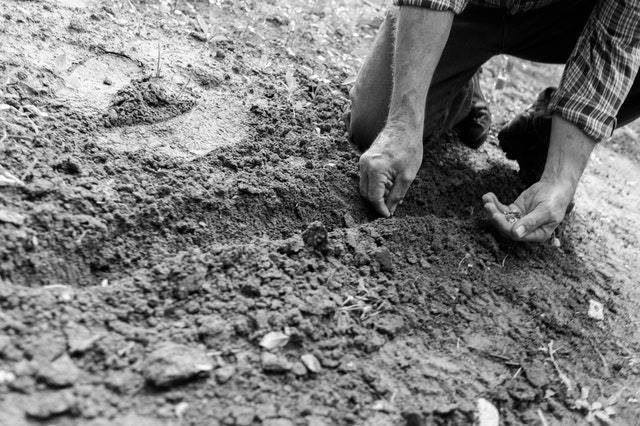Natural champagne philosophies
Natural champagne is an umbrella term for organic and biodynamic champagne. And although these words both sound very natural, they aren't the same thing. Organic champagne producers stay away from herbicides and pesticides and use only natural products to nurture the vines and vineyards. Biodynamic champagne producers take things one step further by taking into account the moon, planets and energy flows. So, if organic champagne is hot chocolate, biodynamic champagne is hot chocolate with whipped cream and chocolate sprinkles. Which is a weird analogy, but you get it right?
I'll make the comparison below, but to learn more about organic and biodynamic principles, also read these pages:
The difference between organic and biodynamic farming in a nutshell
Basically, organic growers nurture the soil of their vineyards and limit the usage of artificial or chemical additives to a minimum. They use wild yeasts and only small amounts of sulphur dioxides. Biodynamic growers enrich the soil of their vineyards by doing everything organic growers do, and then some more. For example, they use biodynamic treatments including clover and camomile to increase diversity and balance. As they follow the philosophy by Rudolf Steiner, they're (even) more holistic and maybe even spiritual. For instance, biodynamic farmers take into account influences of the earth and the cosmos. They also think of their vineyards, grapes, people and even their company as part of a bigger picture.
Natural champagne certifications
As a champagne grower, you can't just put the words "organic" or "biodynamic" on your resume. Well, you can, but it won't mean a thing. In order to be an official organic or biodynamic champagne grower, you need certification:
For organic growers, certificates are handed out by ACB, the Association Champagnes Biologiques and Ecocert
From the year of application, champagne growers must wait four years before they can call their grapes (and champagnes, if they produce them) organic or biodynamic. After all, it takes time before the vineyards are free from pesticides that can end up in the grapes and end products. These four years are tough! Organic and biodynamic methods result in lower yields, as it's thanks to the chemicals, pesticides and artificial fertilisers that champagne growers can grow such great quantities. Moreover, despite the fact that the farmer works according to organic or biodynamic principles, the grapes and champagnes can't yet be named as such. This means that during the transition, they can't ask a higher price like certified growers do.
Because of this, the transition to organic or biodynamic viniculture results in lower yields against relatively low income for four years. Growers really have to want to make the change, and not everyone succeeds. And even if they do, not everyone masters the art of organic and biodynamic grape growing.
Which method is the true champion?
"Does biodynamic always beat organic?" you might wonder. Well, that depends. There are growers that swear by biodynamic farming, but there are also growers that believe the rules are too far-fetched. This is why you'll find many champagne growers combining organic and biodynamic grape growing without caring much about certification. Charles Dufour, for example, took over the biodynamic champagne business from his father, but realised that not all of the biodynamic guidelines suited his style. He "downgraded" to organic farming and only uses biodynamic practices he thinks are useful.
This way of working is very common in the Champagne region. Some champagne growers feel limited by the certification guidelines, others state they've been using natural methods for ages. Why certify something that comes naturally? Then again, certifications do allow growers to sell their grapes at a higher price, which is a huge advantage as organic and biodynamic yields are relatively low and getting certified takes multiple years.
When the magic starts
But oh my... When the transition to organic or biodynamic farming has been successful, that's when the magic starts. Many natural champagne growers say they feel closer to nature and all of them will tell you that their principles can be tasted in their champagnes. The flavours aren't masked by any unnatural additives and reflect the composition of the soil, climate and weather conditions. Hervé Jestin, chef de cave at Leclerc Briant, told me you can taste the entire biodynamic system when you drink their champagnes. He even leaves some of his bottles of champagne on the bottom of the ocean, where they get in sync with the natural rhythm of the waves.
Out of this world
So there you have it: the philosophy behind natural champagne! Especially the biodynamic principles might seem kind of heavy when you first hear about them. They did to me too, but as I learned more about biodynamic champagne, the philosophy started to make a lot of sense. I've had many glasses of mind-blowing natural champagne that made me feel overwhelmed, starstruck and emotional. I never understood why, and I do now. As it turns out, great natural champagne doesn't just taste like it's out of this world- it actually is.
Get ‘Champagne - the Ultimate Guide’
Liked this article? Then you’re going to love my 45-pages guide about champagne. Get it here!


